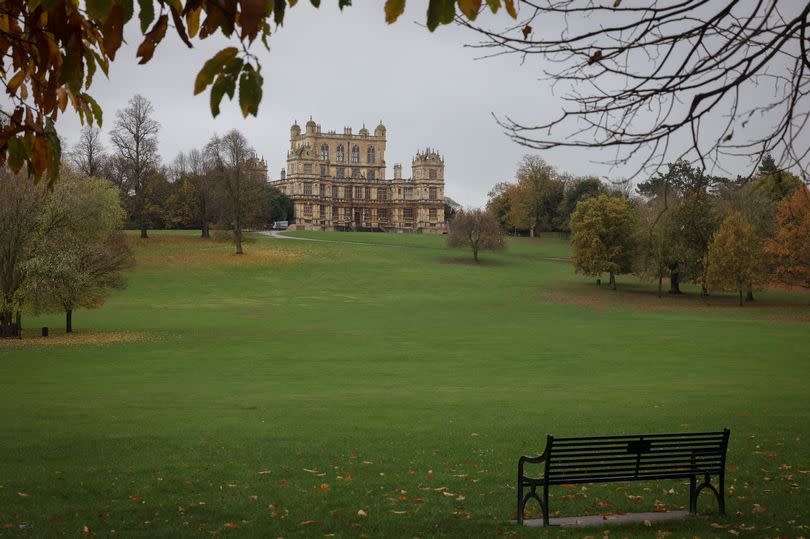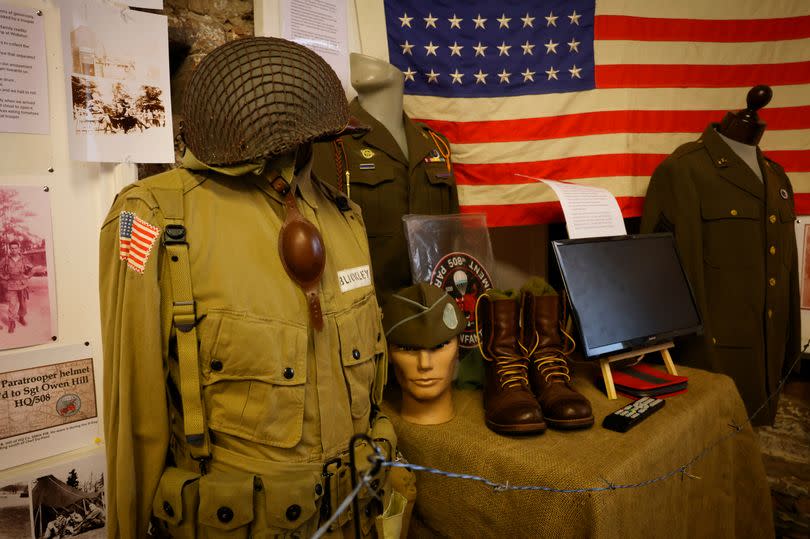How 2,000 American troops became Nottingham locals in World War II

In March 1944, as World War II raged around the globe, Wollaton, with its grand hall and its pastures, largely remained a sleepy suburb of the city. The war, though it may have looked - and was - bleak, was nearing its final straight and preparations for the Allied Invasion of Normandy on June 6 were well underway.
Most lay members of public would not have known about those plans, though. In Wollaton, there was evidence of World War II happenings - Italian Prisoners of War captured abroad were housed in huts erected for British troops, on land to the north side of Wollaton Hall - but they were said to be friendly and peaceful, and got along with locals when they were sent to work on nearby farms.
On the night of March 12, the population of the former civil parish - which had been enveloped into the city of Nottingham in the mid-1930s - went to sleep, and that quietness changed. The next morning, the locals woke up to find the population had increased by 2000.
American Paratroopers - the 508th regiment of the 82nd Airborne Division - had descended on Wollaton Park and pitched tents on the grass overnight. It was to be their base before their part in the D-Day landings.
In just shy of three months, between landing and when they left for Normandy, the servicemen made a great impression on the village. Many were frequent visitors to the local pubs in the evenings after they'd finished their daily training.
The Cricketers Arms in Beeston was a popular choice, as was the Royal Oak in the village. The visitors also frequented local cafes, such as Lyons on Long Row and Cafe De Paris on Pelham Street, as well as cinemas and restaurants.
The boys - with an average age 20 - also made an impression on the local girls, and many formed relationships. But on May 30, the troopers left for Normandy - 2,056 of them in total, in 117 planes from Folkingham and Saltby Airfields in Lincolnshire and Leicestershire respectively.
Nearly half did not return as they'd left. In total, 317 were killed and 660 were wounded.
Many of those boys who had just days earlier been enjoying beers, making friends, flirting with the "Radford girls" and laughing along with such a zest for life, were gunned down before they'd even touched the ground.
Those lucky enough to survive returned to Nottingham on July 13, before leaving for good on September 17 when they were sent to the Netherlands for another operation. Hundreds more were killed or wounded there.
The troops were only relieved of their gruelling duties when the war ended in 1945. After taking part in victory parades in Britain, many left to return home - but others stayed, and descendents of relationships between Wollaton girls and American army boys remain in the village today.
While those with a vested interest are well-versed in Wollaton Park's involvement in the latter events of World War II, the 508th's stay is still a relatively unknown portion of the city's history to many in Nottingham. Now, the village is hosting an exhibition, to commemorate what is an iconic anecdote for those few old enough to remember it happening today.
In conjunction with the Almost Airborne Living History Group, Wollaton Historical & Conservation Society is opening the doors to the sixteenth century dovecote on Dovecote Drive, for those interested to hear and read stories from those who were there, watch never-before-seen footage from the time and see real-life preserved war artefacts in all their glory.

There will also be a room dedicated to memorabilia and artefacts from the time in 1945 when the huts were used for Germans Prisoners of War instead of Italians. Amongst these are fascinating sketches and drawings of the local scenery and Prisoner of War food package boxes.
The exhibition will be opened with celebratory drinks on Sunday, May 12 at 2.45pm and representatives from the Almost Airborne LHG will be on hand to provide detailed insights into the lives of the 508 parachuters of the 82nd Division. Entry is free, and for those who can't make it then, the display will also be open to visitors on June 9, July 6, 7, and 14, August 11 and September 8.

 Yahoo News
Yahoo News 
